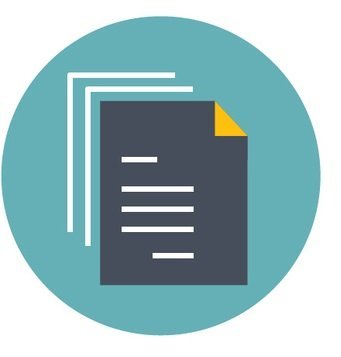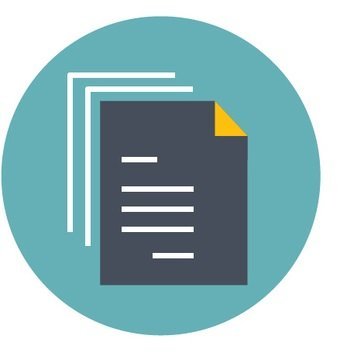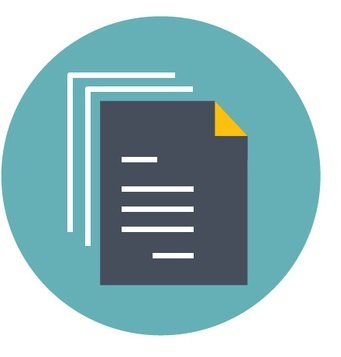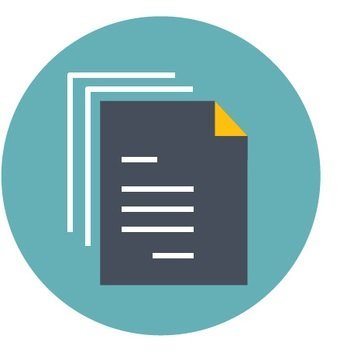Leaderboard
Popular Content
Showing content with the highest reputation since 27/10/20 in all areas
-

Why you DO NOT need to sound like a native English speaker!
Fabi Severo and 3 others reacted to Minoo for a blog entry
These days, I see too many English language students wanting to sound like a native English speaker. They feel they need to speak with a specific native English accent while using many idiomatic expressions. This is a hugely ambitious goal for someone who was not exposed to the English language before they were two or three years old. In my own case, I started learning English at the age of six, and although I’ve been speaking and teaching English every day for the past 37 years, I still don’t sound like a native English speaker. So, if you know someone who has achieved this goal as an adult learner, then they’re a genius! For most of us, however, this is a rather pointless and disempowering goal. Why is this a pointless goal? I can think of four reasons: a) When it comes to communicating with others, accent is irrelevant. Whether we sound British, American, Italian, or Chinese, what really matters is how easily others understand us. b) Good speakers and writers avoid using too many idiomatic expressions and complex structures. They keep their language short and simple. c) English grammar is even difficult for natives to master. As a proofreader, I regularly correct and improve native speakers’ poorly written English. d) Out of the 1.5 billion English speakers worldwide, only 25% are native. If, for the sake of facilitating communication, one group had to change the way they spoke, it would logically be the natives. Why is no-one asking them to lose their regional accents and limit their vocabulary to the 5000 words that are sufficient to communicate in most situations? Why is it a disempowering goal? Our voice and the way we speak is a fundamental part of our personal and cultural identity. If we feel that we must change this important aspect of our identity in order to succeed in life, we’re really telling ourselves: ‘I’m not good enough! I must become someone else, or pretend that I am someone else.’ This negative self-image can generate feelings of lack, inferiority, and envy that disempower us. Even if we work with the most brilliant voice coach to change our accent and memorise the whole of the English idioms dictionary, this ‘I’m not good enough’ belief will result in failure. Loss of self-belief and self-confidence is a huge price to pay for a goal that, as I argued above, is totally pointless. What’s a better goal? Instead of wanting to sound like someone else when we speak English, let’s focus our efforts on sounding like our unique self who speaks with a clear pronunciation and uses simple and correct language. Just imagine for a moment how much less stressful and more motivating this goal can be! Also, put yourself in the shoes of the people you interact with in English, both native and non-native. Don’t you think they love the fact that they can understand you easily and interact with you comfortably? Or, do you imagine that they think less of you because you don’t speak like someone from Melbourne, Dublin, or Texas? I’d love to read your thoughts and stories in the comments section.4 points -
future simple questions
Minoo and 2 others reacted to suresh s for a topic
"I am finished" and "I have finished" have similar meanings, but they are not exactly the same. "I am finished" describes a current state or condition and It emphasizes the result or outcome of the action rather than the action itself. whereas "I have finished" describes a completed action in the past, It emphasizes the action that was completed rather than the result or outcome.3 points -

Why you DO NOT need to sound like a native English speaker!
Fabi Severo and 2 others reacted to Omar Karakhan for a blog entry
Hello Head Tutor, Minoo. I totally agree with you.The main thing is that people understand us, and we understand them. Keep it simple! Regards, Omar3 points -
Grammar (B1+): Past Tenses
BranislavNS and one other reacted to Duris for a file
A very big thank you to you Minoo for having sent me this lesson. As usual, your explanations are cristal clear, you need a gold medal being the best English teacher in the world. I'm serious. I studied this lesson thoroughly and I made only two mistakes at the quiz. That's too many but I am going to do this quiz again.2 points -

Differences Angry-Annoyed-Upset ?
JesusArgentina and one other reacted to Minoo for a topic
Hello Jesus, All three adjectives can be used, but I would use 'angry' because it's the strongest and matches the word 'demand' better. The other two are weaker: annoyed = slightly angry upset = unhappy, disappointed2 points -

How acted Irregular Plural in the sentence?
Doina Becheru and one other reacted to Minoo for a topic
Hello Jesus, Thank you for your question, which we covered in yesterday's LIVE Q&A session. To recap: When 'people' is the plural of 'person', you must use a plural verb: These people are .... When 'people' is a synonym for 'ethnic group', then it is a countable noun, and you can say 'a people' (+ singular verb) and 'peoples' (+ plural verb). This second meaning is not commonly used. So, consider 'people' to be plural 99% of the time.2 points -

Word order: Where to put 'again'?
bozkan and one other reacted to Minoo for a topic
The ‘WHAT’ part includes verb + direct object + indirect object, and we must keep these three elements together. In this case, the direct object is the question and the indirect object is for you. That’s why ‘again’ (an adverb) has come after ‘for you’. Here’s another example from Collins Dictionary: I started to feel good about myself again. You may come across examples where the indirect object has been separated from the verb, but make sure you never separate the direct object from the verb.2 points -

Live workshop
bozkan and one other reacted to Minoo for a topic
Hello Mathias, An excellent question! Here's a description of each type of workshop: Sunday workshops: They involve listening to and speaking with your peers, and typing sentences in the chat box in reply to my questions. One week: Grammar Review & Practice I'm attaching the worksheet from our last session on 15th January. You receive this before the session + the link to the online lesson that we will be revising. You can revise that lesson and do the exercises before the session, or you can come unprepared to test yourself and revise the lesson after the session. In the first part of the session, you partner up with one of your peers in a breakout room, and you do the exercises together. So, in this part you're revising a topic while discussing it with another student. In the second part of the session, I take the whole group through the exercises one by one. Here, you will be listening mainly to me, and occasionally answering a question from me in the chat box. The following week: Conversation Practice (occasionally changed to pronunciation practice) I'm attaching the worksheet from our last session on 22nd January. You can prepare your questions and/or your answers before the session, or you can come unprepared if you want to speak spontaneously. In the first part of the session, you partner up with one of your peers in a breakout room. You ask each other the questions and make a note of each other's answers. In the second part of the session, you share the information you've gathered from your partner with the whole group, speaking for 1-2 minutes. Your partner shares the information he/she has gathered from you with the whole group. NEW Saturday Q&A sessions starting 18th March 2023: hey involve mainly listening to me answering questions posted in the Forum, but you can ask questions live as well. You can post any questions you have in the Q&A Forum in four categories: Grammar, Pronunciation, Vocabulary, and General. You can answer your peers' questions in the Forum (the best way to reinforce your own learning). I choose the best questions from different categories every week and answer them in detail in our Saturday Q&A session. We end each session with a quiz to see how well you remember the different points covered. Don't hesitate to continue this thread if you have any follow-up questions on what I've explained above. 47 Conversation Cars - 22 January 23.pdf 46 Negative words -15 January 23.pdf2 points -

Negative words
JesusArgentina reacted to Minoo for a file
Version 1.0.0
24 downloads
These exercises improve your understanding and usage of the following structure in your Study Plan: Negative words In our LIVE Grammar Workshops: 1. You work through the exercises with one of your peers (breakout room). 2. We go through the exercises all together (main room). 3. I ask you to create your own examples of the structure(s) we have reviewed (chat box). This is the fastest and most effective way of fully understanding and activating grammatical structures. So, I encourage you to join the live sessions when you can. Watch our latest LIVE session on this topic here.Free1 point -

I have done & I did & I had done
JesusArgentina reacted to Minoo for a file
Version 1.0.0
20 downloads
These exercises improve your understanding and usage of the following structures in your Study Plan: Have done & did Did & had done In our LIVE Grammar Workshops: 1. You work through the exercises with one of your peers (breakout room). 2. We go through the exercises all together (main room). 3. I ask you to create your own examples of the structure(s) we have reviewed (chat box). This is the fastest and most effective way of fully understanding and activating grammatical structures. So, I encourage you to join the live sessions when you can. Watch our latest LIVE session on this topic here.Free1 point -

Type of words
Minoo reacted to JesusArgentina for a topic
Hi everyone , That was my question on our last live session. What type of word is 'Neither' in this case? Would you like tea or coffee?’ ‘Neither, thanks. and here; Neither Oleg’s mother nor his father spoke English. see youuu1 point -

Type of words
bozkan reacted to Minoo for a topic
Hello Jesus, Thank you for this question. 'neither' has different functions. In your first example, it's a determiner. In your second example, it has combined with 'nor' to create a conjunction. You can find further explanation and examples in the Cambridge Dictionary, which is the reference book I usually use: https://dictionary.cambridge.org/dictionary/english/neither Enjoy the rest of the week, and see you in our next LIVE session on Saturday. Minoo1 point -

Easily confused words 1
Leliuss reacted to Minoo for a file
Version 1.0.0
27 downloads
In this lesson, we review some words that are often confused with each other, such as economic and economical, or politics and policy. 1. Download the PDF and read the explanations, and/or watch the live lesson here. 2. Take the quiz to test yourself. In LIVE sessions, we go through the correct answers together after you've done the quiz on your own. This is the fastest and most effective way of fully understanding and activating a topic. So, do try to join the live sessions when you can.Free1 point -

Modal verbs: can, could, may, might
Leliuss reacted to Minoo for a file
Version 1.0.0
33 downloads
In this lesson, we learn how to use these modal verbs correctly. 1. Download the PDF and read the explanations, and/or watch the live lesson here. 2. Take the quiz to test yourself. In LIVE sessions, we go through the correct answers together after you've done the quiz on your own. This is the fastest and most effective way of fully understanding and activating a topic. So, do try to join the live sessions when you can.Free1 point -

Tenses in Questions
Tom reacted to Nana85 for a topic
Hello Minioo and Community, I have learned the chapter 'be doing and going to do' from the upper elementry part. While filling in the exercise Part, I realised, that I'm very unsure which time to choose in the questions phrases. As I looked back to the learning part of this chapter, I found not much information to that, except, that one can use either 'to be+ing' or 'going to' for asking somebody about their personal plans and to avoid 'will' in these questions, except when followed by an if-clause. Is there another chapter where this is being explaint in depth? Her some examples of the exercise Part, where I didn't know why the chosen tense is the correct one. -1. When do your classes start next term? -2. What time is the taxi picking you Up? -10. What time does the show begin tonight? This following exercise ist not a question, but I still could not Figuren out why simple present is the correct tense in this phrase. -4. This programme doesn't end until November. Could you please give me an explanation why the chosen tenses are the correct ones in these cases and tell me in which chapter I can find more information about this? Thanks a lot in advance and best wishes. Nana1 point -

Tenses in Questions
Minoo reacted to Nana85 for a topic
Hello Minioo, thank you so much for your very detailed information to my questions. It helpt me quiet a bit to clear things up for me. I will watch the two lessons you recommended to this topic as well and if I still have questions after that, I will ask you in comming up Video lessons. Thanks again and have a good rest of the week. With best regards Nana1 point -

Some
Nana85 reacted to Minoo for a topic
Hello Nana, Sorry for the late reply. I was away for a few days. Both sentences are correct, and there's no difference in meaning. The person may go and but one or several pairs of new shoes.1 point -

Possible mistake in daily challenge
Daniko900 reacted to Minoo for a topic
Hello Dani, Thank you for your question. It's very common for native speakers to connect the sounds /t/ & /d/ to /u:/. The speaker is saying: wha /tu:/, which is very similar to wha /du:/. That's why you think he/she is saying 'what do you'.1 point -
Speaking English Practice.
Minoo reacted to LuisMendoza for a topic
Hello everyone I'm Luis from Peru (-5 hours from London time), Engineer, my English level is intermediate. I'm looking for a conversation partner to practise speaking English with, both about general and business topics. For the reply please use Anglo-link e-mail to LuisMendoza. Thanks1 point -

Too and Two
Doina Becheru reacted to Minoo for a topic
Hello Jesus, Thank you for your question. No, there isn't one single word that can replace 'two too'. But, because they're both pronounced in exactly the same way, and it's phonetically awkward to say 'two too', it's best to use a synonym of 'too' instead: I'd also like two. I'd like two as well.1 point -
future simple questions
suresh s reacted to Ann-Marie for a topic
Is it correct to say 'When I am finished tomorrow'? I know 'when I've finished tomorrow' is ok. Thanks in advance.1 point -

future simple questions
suresh s reacted to Minoo for a topic
Thank you, Anne-Marie for your question, and Suresh for your good answer. What I can add: 'I'm finished!' can also mean 'This is the end of me! I'm broke. / I'm going to be fired. / I'm going to lose everything. etc. To express the 'outcome' that Suresh mentions above, the expression 'I'm done.' is more common than 'I'm finished.' especially in British English.1 point -
1 point
-

as vs like
Doina Becheru reacted to Minoo for a topic
An excellent topic, Elke! I'll put a lesson together on this topic for one of our next Live Q&A sessions.1 point -

Preposition 'on'
bozkan reacted to Minoo for a topic
Thank you for posting this question, Doina! For those of you who couldn't join us yesterday, here's the recording of my answer in our live Q&A session: https://drive.google.com/file/d/14HZyo3RQ_FB8KKLnYsJ3Eu6Eam77V7n0/view?usp=share_link1 point -

Of vs Off
Minoo reacted to Doina Becheru for a topic
Hello Minoo, Please explain to us when to use 'of ' vs 'off'. Thank you!1 point -
needn't I or don't I? What's the correct question tag?
Minoo reacted to Nguyen Thao for a topic
I need to start from scratch, needn't I?1 point -
How to activate a grammatical structure?
Minoo reacted to Elke for a topic
Hi, Minoo, I see only one possibility to activate a grammatical structure and this is to use it as often as possible by writing down some sentences or use this structure in a conversation. I find your grammar workshop very helpful. ELKE1 point -
Teaching english for olders
Minoo reacted to G KRISHNA MURTHY for a topic
Madam, I would like to join in this olders course. Please send me the fee details. I am 57 years old.1 point -

Live workshop
Minoo reacted to Matze for a topic
Hello, I have a question about the online meeting with you, how does it work, how should I imagine it, I have never done anything like this before and I just feel insecure. Is it just listening or also actively talking? I would be grateful for a bit of information. Kind regards1 point -

Teaching english for olders
Minoo reacted to Rachid Issaoui for a topic
Most challanges for old mens womens to acquire english1 point -
needn't I or don't I? What's the correct question tag?
Minoo reacted to LuisMendoza for a topic
b) I need to start from scratch, needn't I ? for the use the same expression in negative form.1 point -

How to use your course for optimal results
Matze reacted to Minoo for a topic
Hello and welcome to the course everyone! It's a pleasure to have you onboard! Here are some recommendations on how to make the most of your studies. 1. Where to start Whatever your level is, it would be a good idea to revise all the basics and close any gaps. So start at the first level: Lower Elementary (A2). Use the ‘test’ section of each lesson to check if you have any gaps, and review the recommended sections. When the tests start to get difficult, then study each lesson in detail (Study & Exercise) before taking the test. 2. How long to study each day Try to study 30-60 minutes every day. On the days you have less time, revise a lesson you’ve already done, or just listen to some audio files you’ve downloaded. Revision is really important! If a lesson is challenging you, don't keep repeating it on the same day. Move on and return to it after a few days. 3. How to watch the video lessons Take notes while you watch video lessons or read written explanations. This is really helpful in assimilating the material. For example, you can note down the new words with their English definitions (the less translation, the better) and two example sentences for each structure, one from the lesson and one of your own. 4. How to work on your speaking skills After typing your answer to a written exercise, repeat the recording of the correct answer out loud (not just in your head) several times until you can repeat it easily and without reading it on your screen. The real test of assimilation is when you can repeat it at the same time as the model (shadowing). Also, download the audio files of the online exercises and save them to your mobile device. You can then use these to improve your listening and speaking skills anywhere anytime. 5. Where to find more listening and speaking exercises There are additional listening and speaking exercises in the Daily Challenge section. Some other great things you can do in addition to your online studies: 1. Relaxed listening Every day, watch/listen to something in English for 20-30 minutes. Choose YouTube clips, TED talks, podcasts, or TV series that you like and understand easily, for example a TV series that you’ve already watched in your own language. Just relax and listen; don’t try hard to understand everything. If you don't have time, pair this relaxed listening with another activity, e.g. driving or cooking. Then, once or twice a week, choose something that you love and watch it several times. You can watch it once or twice with English subtitles, and once or twice without subtitles. This will allow you to remember and use new vocabulary and expressions that you hear and read in those clips, talks, or series. If you watch something new every time, only your passive knowledge of vocabulary will increase, but not your active usage. 2. Focused listening & writing Take dictations occasionally. From time to time, use what you have watched or listened to for dictation exercises. You can also use audio books if you have the printed version of the book. Listen and write down a small section (1 or 2 minutes), then check what you’ve written against the subtitles or the page in the book. This is a great exercise to improve many things at the same time: listening, pronunciation, grammar, vocabulary, and spelling. 3. Free writing Keep a diary in English. Once a week, write a few sentences about your week in your diary. You will find that you can gradually write more and better as you progress through your online course. Applying the things you're learning in your own writing will help you to integrate them into your speaking more quickly. If you have access to someone who can give you feedback, ask them to check your writing. Happy studies!1 point -

Essay writing tips tutorial
Roman_R reacted to Minoo for a topic
Dear all, This is to let you know that the tutorial has just been released on my YT channel. It will soon be published in the 'tutorial' section of the 'video lessons' on the platform. If you would like to watch it straight away, go to this link: https://youtu.be/mXrqCJ2hvI0 I hope you enjoy it.1 point -
Why this sentience is not correct?
Minoo reacted to Daniko900 for a topic
The expressions "be used to" and "get used to" require a noun. Therefore, if you want to use a verb after it, you must use the gerund. Gerunds act like nouns.1 point -

Why this sentience is not correct?
Acnana reacted to Minoo for a topic
Hello Acnana, There's a spelling mistake: He always nods off .....1 point -

tag question
Acnana reacted to Minoo for a topic
Hello Acnana, 'd is the contraction of both 'would' and 'had': I would do (infinitive) ... = I'd do ... I had done (past participle) ... = I'd done ... It'd happened ... = It had happened ..., hadn't it? I hope this is clear for you now. Happy continuation! Minoo1 point -

enable a blog inside each lesson
Minoo reacted to boris_bikes for a topic
Sometimes I would like to write some doubts in the videos or lesson, and it could be very useful to share with our classmates the same questions and it could be more interactive solve those ones.1 point -
Why you DO NOT need to sound like a native English speaker!
Minoo reacted to Greeshma.Mangineni for a blog entry
And, I like your way of teaching mam and I think there is no end for learn this English.1 point -
Why you DO NOT need to sound like a native English speaker!
Minoo reacted to Greeshma.Mangineni for a blog entry
Hi,minoo miss i would like to share one thing about this class.That,i like you order of class about English I learned more English in this classes. .1 point -

Do you wish you spoke English perfectly?
PHIL73 reacted to Minoo for a blog entry
I often hear my students say: I wish I could speak English perfectly! Is this a wish on your mind too? So, what's wrong with this wish? Perfection is an illusion. Setting perfection as a goal is like choosing a cloud as your destination. When we just wish for something, we don't set goals or take action. We just sit and wait for a miracle. What can we do instead? We can change our 'cloud-like wish' into a 'concrete goal' by changing our thought processes in three steps: Step 1. Change 'I wish I could ...' to 'I want ...': I want to speak English really well. Step 2. Keep repeating the 'I want ... ' statement over and over again until it becomes a strong desire. Step 3. Transform our strong desire into a positive goal: I will speak English really well. These small language changes to our internal dialogue have a powerful effect. They focus our mind on progress and achievement. We become motivated to take action, to get the right tools, and to invest enough time to reach our goal. What if I've already done this, but it hasn't worked? Some of you may be saying: 'I've already done this many times: I've set positive goals; I've bought different books and online courses; I've attended hundreds of hours of classes, but my English is still weak. I suppose I'm just not gifted for languages. I should give up trying!' If this is your feeling, then let me assure you that you're as gifted for languages as any polyglot out there. If you're not making progress despite your best efforts, it's a sign that you may have experienced one or more difficult situations in your earlier contact with the English language: maybe a harsh teacher at school, maybe a challenging situation at work, maybe someone said you weren't good at languages and you believed them. To set new goals for your English and succeed in them, it's important that you first clear any blocks caused by unpleasant past experiences. The first step in clearing blocks is sharing your story with others and realising that you're not alone in feeling like this. You can take this first step by taking part in the poll that I've added to the top of this blog post. If you want to take a bigger step, share your story with me and with your peers in the comments section: What was the unpleasant past experience that you think may be slowing down your progress? Have you found ways to overcome such blocks that you would like to share with your peers?1 point -

Why you DO NOT need to sound like a native English speaker!
Minoo reacted to Butterfly 55 for a blog entry
Hi Miss Minou, I have taken note of the definition of fluency, which you had already explained earlier on YouTube with the heading: ' How to speak and write English fluently.' - What means fluency? - Which one of these methodes will get you to fluency. Fluency: speak and write easily and clearly: keywords: with ease - confidence - clarity. —> you will gradually introduce more complex vocabulary and structures as you continue to expand your knowledge. —> The shorter and more concist your sentence is, the better. —> learn everyday vocabulary that you are able to use most of the time. ( Collect them in a notebook, teaching materials and try to rehairse it as often as possible) —> work on areas of pronunciation that may be affecting the clarity of your message. Methode: which of these methods will get you to fluency? - Get a grammar book and a phrase book to study at home, supplement this by watching YT lessons. - Watch movies, listen to audiobooks and read books, or live in an English-speaking country. ( record BBC breakfast as it is subtitled.) - Sign up for conversation classes, study with a teacher and practise with other students. (evening classes) —> conclusion : all of this. An integrated matter or system that give you a step by step a study plan going progressively from easy to difficult and eliminating the need for explanation in your language. With lots of written and oral exercising, so practise speaking and writing all the time. So you need an on going teacher support including periodic feedback of your rating and speaking skills. In order to learn what is good and what you need to work on. My conclusion : Anglo- link is a great course to start with…it has its own correction system when making exercises. - Reading challenge, read ebooks : Macmillian Readers, learning platform for electronic devices. (ebooks which go along with 'read out' - listening of what is said in the ebook. As for myself: work on New Headway Advanced study book 4th edition Oxford university press; however, I bought it from amazon.com Amazon marketplace. Along with the ebook version - Oxford learner’s Bookshelf Also, the solutions of questions are found on the teacher webside https://access.oup.com/eac/productRegistration.htm https://fdslive.oup.com/www.oup.com/elt/teachers/headway/sb-answerkeys/hw5e-adv-sb-ak-editable-benelux.docx - Rakuten Kobo Ebook and Audible listening books: Maigret and the Man on the Bench. by G. Simenon. - YouTube.com/penguinbooks // Facebook.com/ penguin-books Listen to penguin at SoundCloud.com/penguin-books1 point -

VIDEO DICTIONARY - THE FARM PART2
Samuel Ashenafi reacted to Rodolfo Marttos for a topic
Hi friends! This is my Video Dictionary – The Farm Part2. I’ll try to publish one vídeo every week. I hope that you appreciate! Thank you! ? THE_FARM2_v2.mp41 point -

VIDEO DICTIONARY - BABY THINGS
Samuel Ashenafi reacted to Rodolfo Marttos for a topic
Hi friends! This is my Video Dictionary – Baby Things. I’ll try to publish one vídeo every week. I hope that you appreciate! Thank you! VIDEO_BABY.mp41 point -

Time markers - rehears
Samuel Ashenafi reacted to Butterfly 55 for a topic
Hi everyone, One has to know and make onseself accustom to those different time markers. Tenses: I have been doing & I have done: How long have you been living ( he live ) in this flat? (another example: How long has it been snowing? (answer: How long have you has he lived in this flat.)) Possibly a wrong wording? XXX They don't have (not have) a good time at the moment. XXX They haven’t had a good time at that moment. Tenses: Why hasn't she called (she not call) me yesterday morning? usage: precise moment in the past: Why didn’t she call me yesterday morning. How long ago has he posted (he post) the letter? Past Simple markers: How long ago did he post the letter? Tenses: They are talking (talk) for hours. usage: They have been talking for hours. I am not feeling (not feel) well lately. formulation : I have not been feeling well lately. ( The action is still in progress or ended a short time ago.)1 point -

VIDEO DICTIONARY - THE FARM PART1
Samuel Ashenafi reacted to Rodolfo Marttos for a topic
Hi friends! This is my Video Dictionary – The Farm Part1. I’ll try to publish one vídeo every week. I hope that you appreciate! Thank you! ? THE_FARM.mp41 point -

Conditional
rasha j reacted to Minoo for a topic
Hello Rasha, Thank you very much for your support. I'm glad you like my website. You raise a very interesting point, and you're right that occasionally we may see 'will' in the 'if' clause. That's usually when we're using 'will' to show someone's willingness to do / not to something: A: I will not speak to him. B: O.k. If you won't (are not willing to) speak to him, I will do it. In your sentence, too, you can replace 'won't by 'be willing to': If you are not willing to have something done on time, be clear about it.1 point -

Present Subjunctive
Minoo reacted to MariaTeresa for a topic
..I've always thought that written English was only formal.. isn't it bad to write as we speak? Does it depend on the subject? I'm taking my first written text next week: I'll just try to write clearly then, not to formally, using proper grammar, spellig, punctuation and forgetting about those complex grammatical structures or sentence patterns I've never fully comprehended. Thanks for your immediate reply!1 point -

How to build vocabulary ?
Vijaymit reacted to Minoo for a topic
Thank you for your contribution, Pier. Indeed, it is great to use movies and songs that you like to learn new expressions. I would like to add a couple of suggestions: Choose movies you have already seen in your mother tongue and really liked, and watch them three or four times, first with English subtitles, and then two or three more times without subtitles with one or two weeks between each viewing. You will be amazed at how much more you understand each time even without subtitles. Remember that if you have the subtitles on all the time, your listening comprehension does not improve as much, so limit the subtitles only to the first time you watch a movie. Same goes for your favourite songs. Learn the lyrics (with some translation if necessary), and then listen to them again and again, and sing along with them.1 point -

Example Question: ‘Fill in’ & ‘Fill out’
Fabi Severo reacted to Minoo for a topic
Yes, strangely enough, they are. ‘fill in (a form)’ is more common in British English, and ‘fill out (a form)’ is more common in American English.1 point
















